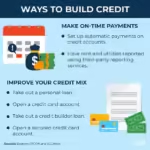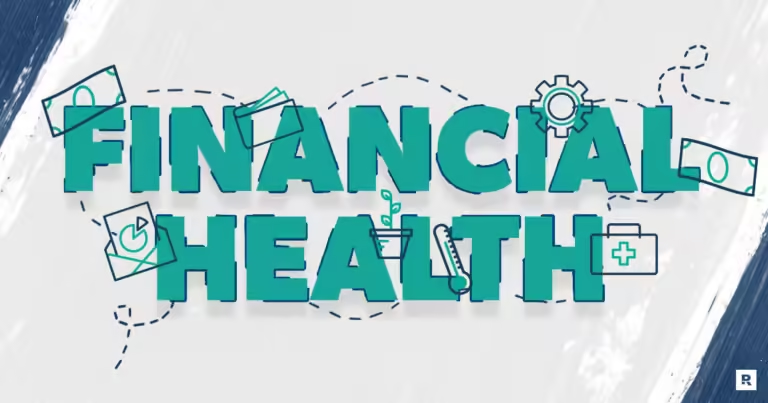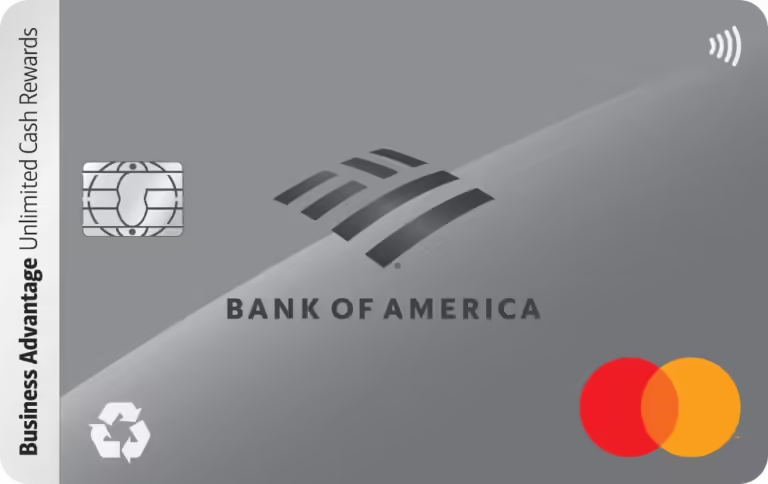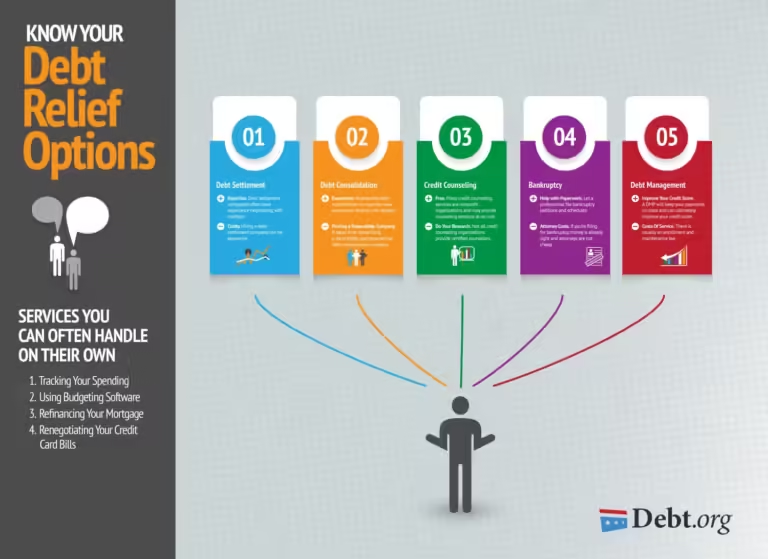Credit-Building Tips for Beginners
Start by getting a secured credit card and paying your bills on time. Monitor your credit report regularly.
Building credit is essential for financial stability. Newcomers to credit need to understand the basics to make informed decisions. A secured credit card acts as a stepping stone. It requires a cash deposit, which serves as your credit limit. Paying bills on time is crucial as it shows lenders you are reliable.
Regularly monitoring your credit report helps identify errors and track your progress. These steps lay a strong foundation for a good credit score. Establishing good credit habits early will benefit you in the long run. Remember, patience and consistency are key.
Introduction To Credit
Knowing credit is essential for financial wellness. Credit affects your capacity to borrow money. It also influences interest rates and loan approvals. For newcomers, establishing good credit can appear difficult. This guide will help to streamline the process.
Importance Of Good Credit
Good credit opens many financial doors. It can help you get better interest rates. Lenders see you as a low-risk borrower. This can save you money over time.
Good credit also impacts rental applications. Landlords often check your credit score. A good score can make renting easier.
Employers may check your credit report too. It can influence job offers. So, maintaining good credit is important for many aspects of life.
Common Credit Myths
Many people believe in credit myths. These myths can mislead you. Here, we debunk some common myths.
- Myth: Checking your credit hurts your score.
- Fact: Checking your own credit does not harm your score.
- Myth: Closing old accounts boosts your score.
- Fact: Closing accounts can lower your score.
- Myth: You need to carry a balance to build credit.
- Fact: Paying off your balance in full is better.
Knowing the facts helps you make better decisions. Avoiding myths can save you from common pitfalls.
Understanding Credit Scores
Anyone who is new with credit needs to understand credit scores. A good credit score opens many financial doors. It can affect your ability to get loans, credit cards, and even rent an apartment. This section will break down what a credit score is and the factors that affect it.
What Is A Credit Score?
A credit score is a number. It ranges from 300 to 850. This number shows how likely you are to repay debt. Lenders use this score to decide if they will lend you money. A higher score means you are a lower risk to lenders.
| Credit Score Range | Rating |
|---|---|
| 300-579 | Poor |
| 580-669 | Fair |
| 670-739 | Good |
| 740-799 | Very Good |
| 800-850 | Excellent |
Factors Affecting Credit Scores
Several factors affect your credit score. These factors are:
- Payment History: This is the most important factor. It shows if you pay your bills on time.
- Credit Utilization: This is the amount of credit you are using. It is better to use less than 30% of your available credit.
- Credit History Length: Longer credit history can improve your score. This shows you have more experience with credit.
- New Credit: Opening many new accounts in a short time can lower your score.
- Credit Mix: Having different types of credit (loans, credit cards) can help your score.
Understanding these factors can help you manage your credit better. Aim to keep a good balance in all these areas.
Secured Credit Cards
Starting your credit journey can be daunting. One useful tool to consider is a secured credit card. These cards help build your credit history safely. They require a cash deposit as collateral, making them less risky for lenders.
How They Work
Secured credit cards operate similarly to regular credit cards. You make a cash deposit which acts as your credit limit. For example, a $500 deposit gives you a $500 credit line. This deposit reduces the lender’s risk. You use the card for purchases and pay the bill monthly.
The lender reports your payment activity to the credit bureaus. This reporting helps build your credit score. Over time, responsible use can lead to better credit options.
Benefits For Beginners
Secured credit cards offer several benefits for beginners. First, they are easier to obtain than unsecured cards. Even with no credit history or poor credit, approval is likely.
Second, they help establish or rebuild your credit score. Regular, on-time payments show lenders you are a responsible borrower. This activity is crucial for improving your credit score.
Third, secured cards teach good financial habits. They encourage budgeting and responsible spending.
Below is a table summarizing the key benefits:
| Benefits | Description |
|---|---|
| Easy Approval | Great for those with no or poor credit history |
| Credit Building | Helps establish a positive credit history |
| Financial Habits | Encourages budgeting and responsible spending |
Authorized User Status
Learning about credit-building can be challenging for beginners. One effective method is becoming an authorized user on someone else’s credit card. This status offers opportunities to build a positive credit history.
What It Means
Authorized user status means you are added to someone else’s credit card account. As an authorized user, you can use the credit card but are not responsible for the debt. The primary cardholder is responsible for paying the bill.
You get a card in your name linked to the primary account. Your name appears on the credit card, but the account is not yours. This helps you build credit without needing your own account.
Impact On Credit Score
Being an authorized user can positively affect your credit score. The account history of the primary cardholder will appear on your credit report. If they have good credit habits, it can boost your score.
| Positive Impact | Negative Impact |
|---|---|
| Timely payments improve your credit history. | Late payments can harm your credit score. |
| Low credit utilization ratio helps your score. | High credit utilization ratio can lower your score. |
- Timely payments by the primary cardholder boost your credit.
- Low credit utilization ratio positively impacts your score.
Ensure the primary cardholder has good credit habits. This way, you can benefit from their positive credit behavior.
Timely Bill Payments
Timely bill payments are crucial for building a good credit score. Paying bills on time helps you avoid late fees and boosts your credit history. Let’s explore some tips to ensure you never miss a payment.
Setting Up Reminders
Setting reminders is a great way to remember due dates. You can use phone alarms or calendar notifications. Many banks offer free reminder services. You can also set up email alerts for upcoming payments. Another option is to use budgeting apps. These apps often have built-in reminder features.
Consequences Of Late Payments
Late payments can seriously harm your credit score. Even a single late payment can lower your score. You might also face late fees and higher interest rates. Frequent late payments can lead to account closures. This will make it harder to get loans in the future.
Here are some key consequences of late payments:
- Lower Credit Score: One missed payment can drop your score.
- Late Fees: Extra charges that add up quickly.
- Higher Interest Rates: Creditors may increase your rates.
- Account Closures: Frequent lateness can lead to closed accounts.
Make timely payments a habit to avoid these issues.
Managing Credit Utilization
Managing credit utilization is crucial for credit-building beginners. It shows how much credit you use compared to your limit. Keeping this ratio low can boost your credit score. Let’s dive into some tips to help you.
Ideal Utilization Rate
The ideal utilization rate is below 30%. This means using less than 30% of your available credit. For example, if you have a $1,000 credit limit, keep your balance under $300. This shows lenders you manage credit well.
Tips To Lower Utilization
- Pay off balances early: Pay off your credit card balances before the billing cycle ends. This keeps your reported balance low.
- Increase credit limits: Ask your credit card issuer for a higher credit limit. This lowers your utilization rate without changing your spending.
- Spread out purchases: Use multiple cards instead of maxing out one. This keeps individual card utilization low.
- Make multiple payments: Pay your credit card bill more than once a month. This helps keep your balance low throughout the month.
- Set up alerts: Set up spending alerts. This reminds you to stay within your target utilization rate.
Follow these tips to manage your credit utilization effectively. Keeping your utilization rate low is key to building a strong credit history.
Credit Builder Loans
Credit builder loans are special loans designed to help you build credit. They are perfect for beginners who want to improve their credit scores. These loans are different from regular loans as they focus solely on boosting your credit profile.
How They Function
Credit builder loans work uniquely compared to traditional loans. Here’s how:
- You apply for a credit builder loan from a bank or credit union.
- If approved, the loan amount is held in a secured account.
- You make monthly payments towards this loan.
- Once the loan is fully paid, you receive the money.
This process helps in building a credit history. The lender reports your payments to the credit bureaus. This can boost your credit score if you pay on time.
Pros And Cons
| Pros | Cons |
|---|---|
|
|
Credit builder loans can be a great tool for improving your credit. Ensure to make timely payments to reap the benefits.
Monitoring Your Credit
Monitoring your credit is crucial for building a strong financial future. It helps you track your progress and catch any errors. By keeping an eye on your credit, you can ensure your score stays healthy.
Using Free Credit Reports
Everyone can get free credit reports. You can get one from each major bureau annually. These bureaus are Experian, Equifax, and TransUnion. Use these free reports to check your credit.
Visit AnnualCreditReport.com to get your free reports. This site is the only authorized site for free credit reports. Checking your report does not affect your credit score.
| Credit Bureau | Website | Frequency |
|---|---|---|
| Experian | experian.com | Annually |
| Equifax | equifax.com | Annually |
| TransUnion | transunion.com | Annually |
Identifying And Disputing Errors
Errors on your credit report can hurt your score. Look for incorrect personal info, wrong accounts, or false late payments. Finding these mistakes early is essential.
- Check your personal information: name, address, and Social Security number.
- Look at your account details: balances, limits, and status.
- Ensure payment history is accurate: no false late payments.
If you find an error, dispute it right away. You can dispute errors online or by mail. Provide evidence to support your claim.
Use the bureaus’ websites to start your dispute:
Monitoring your credit regularly helps you stay on top of your financial health. Use free reports and dispute errors to keep your credit score strong.
Avoiding Common Pitfalls
Building credit for the first time can be challenging. It’s crucial to avoid common pitfalls. Mistakes can damage your credit score. Here are some essential tips to help you steer clear of common errors.
Avoiding Hard Inquiries
Hard inquiries occur when lenders check your credit. Too many hard inquiries can lower your credit score. Apply for credit only when necessary. Space out your applications. This helps minimize the impact on your score.
- Limit credit applications to once every six months.
- Research before applying to avoid unnecessary inquiries.
- Ask lenders if they perform a hard or soft inquiry.
Understanding Credit Limits
Credit limits are the maximum amounts you can borrow. Using too much of your credit limit harms your credit score. Aim to use less than 30% of your available credit.
| Credit Limit | Recommended Usage |
|---|---|
| $1,000 | Less than $300 |
| $5,000 | Less than $1,500 |
- Monitor your credit usage regularly.
- Pay off balances in full each month.
- Consider increasing your credit limit if needed.
By avoiding these common pitfalls, you can build a strong credit history. Stay mindful of hard inquiries and manage your credit limits wisely.
Long-term Credit Strategies
Building credit is a long-term goal. It’s important to have a strategy. This guide will help you understand how to maintain good credit habits and plan for major purchases.
Maintaining Good Credit Habits
Keeping a good credit score takes effort. Here are some key tips:
- Pay bills on time: Timely payments boost your credit score.
- Keep credit card balances low: High balances can hurt your score.
- Check your credit report: Look for errors and fix them.
Consistency is key. Make sure to follow these habits every month. A good credit score opens many financial doors.
Planning For Major Purchases
Thinking about a big purchase? Good credit planning can help. Here are some steps:
- Set a budget: Know how much you can afford.
- Save for a down payment: A larger down payment lowers monthly costs.
- Check your credit score: Better scores mean better loan rates.
These steps make big purchases easier. A good credit score saves you money in the long run.
Here’s a quick look at how your credit score affects loan rates:
| Credit Score Range | Interest Rate |
|---|---|
| Excellent (750+) | 3.5% |
| Good (700-749) | 4.0% |
| Fair (650-699) | 5.0% |
| Poor (600-649) | 6.5% |
As seen, a better credit score can lead to lower interest rates. This saves you money over time.
Frequently Asked Questions
What Is A Credit Score?
A credit score is a numerical representation of your creditworthiness. It ranges from 300 to 850. Higher scores indicate better credit health.
How Can I Start Building Credit?
You can start building credit by opening a secured credit card. Use it responsibly and pay off the balance monthly.
Why Is Paying Bills On Time Important?
Paying bills on time is crucial as it directly impacts your credit score. It shows lenders you are reliable.
How Often Should I Check My Credit Report?
You should check your credit report at least once a year. This helps identify errors and monitor your credit health.
Conclusion
Building credit takes time and patience. Start with small, manageable steps and stay consistent. Always pay bills on time and monitor your credit report regularly. Following these tips can set you on a path to a strong financial future. Remember, good credit opens doors to better opportunities.
Keep learning and stay committed.







